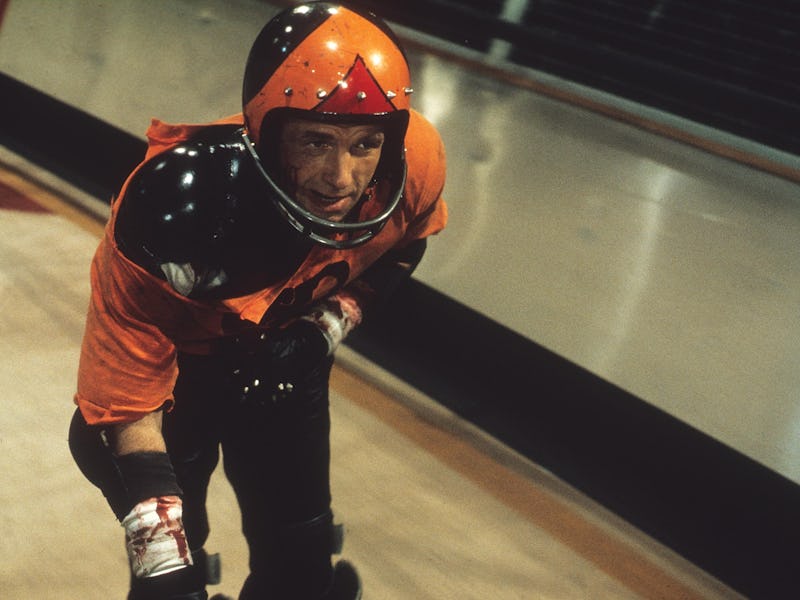Before The Running Man And The Hunger Games, There Was Rollerball
Just roll with it.

Before reality TV was a pop culture staple, it was the stuff of sci-fi nightmares. Movies like The Running Man satirized and skewered the desire to make humanity’s brutal side into entertainment, and the genre only grew as reality TV became a staple of everyday life. And 50 years ago today, long before movies like The Hunger Games drew inspiration from it, one movie solidified the genre’s potential to take down classism and corporate tyranny while still being goofy as hell.
Rollerball comes from one of the most diverse directors in film history, Norman Jewison, who somehow managed to make Moonstruck, In the Heat of the Night, Jesus Christ Superstar, Fiddler on the Roof, and dozens of others. Despite a long career, Rollerball was Jewison’s only science-fiction movie, but he got his money’s worth out of it, combining elements of Logan’s Run and Soylent Green to run the gamut of 1970s sci-fi tropes.
It’s also a sports movie as much as a sci-fi one. The film, based on a 1973 short story published in Esquire, follows Jonathan E. (James Caan), the star of Houston’s Rollerball team. Rollerball is an ultra-violent game that’s become a dystopian America’s pastime, and while the rules aren’t terribly important, it combines elements of roller derby, hockey, and motocross on a circular track occupied by motorcycles and a heavy metal ball.
Jonathan is trying to get his team to the championship, but the powerful corporate executives who sponsor the team — and run the country — are determined to force him into retirement for initially mysterious reasons. Jonathan refuses, so his corporate overlords tweak the game’s rules, constantly making it more and more dangerous so that, if Jonathan doesn’t retire, he’ll almost certainly lose his life.
Jonathan E. is the ruthless star of Houston’s rollerball team in Rollerball.
That’s just scratching the surface of the story, which features plenty of brutal Rollerball action, genius AI, fancy costumes, and, of course, classic 1970s computer interfaces. While it’s the action that’s best remembered, the scenes in between the Rollerballing feel more like The Manchurian Candidate in their dramatic urgency. Rollerball may have one of the silliest premises in dystopian sci-fi, but it works because it takes itself deathly seriously.
A half-century later, the Sci-Fi Reality Show microgenre is on the verge of a rebirth: The Hunger Games is coming back for a new prequel, and The Running Man is getting a star-studded remake. It’s unlikely Rollerball will be revived too — the 2002 remake was such a mistake it was partly responsible for its director’s incarceration — but genre fans should forever respect its combination of unbridled ambition and willingness to tread into silliness.